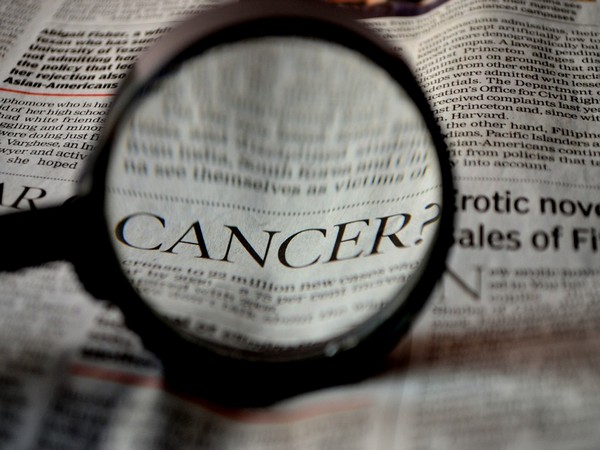Guinea asks IAEA’s urgent support to address its growing cancer burden
According to data collated in the IARC Global Cancer Observatory, close to 8000 Guineans were diagnosed with cancer in the year 2020, out of a total population of 13.2 million.

One of the IAEA’s newest Member States, the Republic of Guinea, requested the IAEA’s urgent support to address its growing cancer burden. In response, the IAEA, the World Health Organization (WHO) and the International Agency for Research on Cancer (IARC) sent a team of international experts to the country in December 2023 to carry out a comprehensive imPACT Review. Due to the high prevalence of cancer in the country, in particular cancers caused by infectious disease (such as cancer of the cervix or liver), prevention and early detection measures were high on the agenda of the review team.
“The high prevalence of cancer in Guinea is a source of concern and the Government has given priority to this challenge. Preventing cancer, and detecting and treating it earlier, will save heartache and pain for countless individuals and families,” said Mohamed Lamine Yansané, Secretary General at Guinea’s Ministry of Health.
According to data collated in the IARC Global Cancer Observatory, close to 8000 Guineans were diagnosed with cancer in the year 2020, out of a total population of 13.2 million. Cervical cancer accounted for one in four of these cases, making it an urgent priority for the government to tackle.
“Every day in the Republic of Guinea, six women are diagnosed with cervical cancer and four die. The human papillomavirus, which is the main risk factor, has a prevalence of approximately 50 per cent in the general population. It is absolutely urgent to introduce the HPV vaccine, improve the screening programme and set up a national cancer institute, including radiotherapy, to embark on a strategy of eliminating cervical cancer,” said Bangaly Traore, Focal Point for the imPACT Review and Coordinator of the National Cancer Control Programme.
This sense of urgency prompted Guinea to promote itself as a focus country for the WHO’s Cervical Cancer Elimination Initiative. Twenty-four operational centres run by different organizations now offer cervical cancer screening services in the country, and fourteen of these are equipped to treat precancerous lesions, including two with thermocoagulation – a type of treatment used to seal lesions with heat.“Cancer control is a priority for the WHO Country Office in Guinea and, in order to ensure a comprehensive approach, we will integrate the recommendations put forward by the imPACT Review experts into the biennial Plan of activities 2024-2025,” stated Jean Marie Kipela, WHO Country Representative.
At the end of the mission, experts from the imPACT Review team presented their key recommendations to the Ministry of Health. The findings stem from an initial period of data gathering and analysis, corroborated by the exchanges and visits that took place over the course of the weeklong mission. The recommendations included the need to integrate cervical cancer screening into the essential health care package on offer to public patients; reinforcing diagnostic services by equipping regional hospitals with mammographs and CT scanners; developing teleradiology (a technology which enables radiological patient images to be shared between doctors based in different hospitals); and setting up an integrated centre for cancer diagnosis, treatment and research.
Following the imPACT Review, a three-day workshop was organized by the Ministry of Health, with WHO assistance, to draft a National Cancer Control Plan (NCCP). This plan will guide all future national efforts in terms of cancer prevention, management and monitoring in the country, aiming to reduce the challenges faced by patients in accessing cancer care and improve coordination between government institutions, the private sector and civil society organizations. It also seeks to re-establish and formalize the cancer registration system that was created in 1992, in order to enable the Ministry of Health to track the impact of cancer control efforts and spending on rates of cancer incidence.
The broader picture
The Review mission also provided an opportunity to present to national authorities the IAEA’s technical cooperation programme, beyond cancer, explaining how the country can benefit from IAEA support.
“We are very pleased that the imPACT Review opens the door for IAEA to support Guinea, one of the IAEA’s most recent Member States,” said Shaukat Abdulrazak, Director for the Division for Africa at the IAEA Department of Technical Cooperation. “In terms of cancer control, it is vital that all partners and stakeholders come together to support the implementation of priority actions identified by the imPACT Review experts.”
ALSO READ
IAEA Releases Guidelines for Secure Transport of Nuclear and Radioactive Material
IAEA Hosts Workshop in Manila to Strengthen Nuclear Legal Frameworks in Asia-Pacific Region
Lisa Stevens: Championing Global Cancer Control and Inspiring Women in STEM at the IAEA
IAEA Head Grossi Visits Paraguay to Strengthen Nuclear Science Cooperation for Development
Korea's KIRAMS Named IAEA Rays of Hope Anchor Centre to Bolster Global Cancer Care










